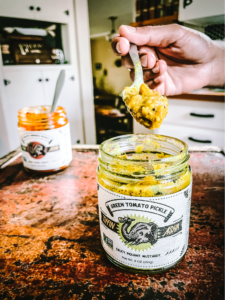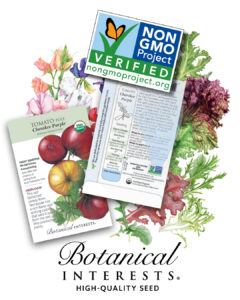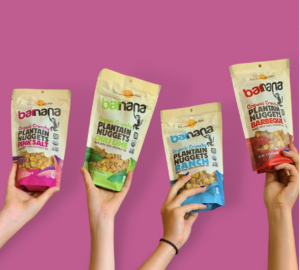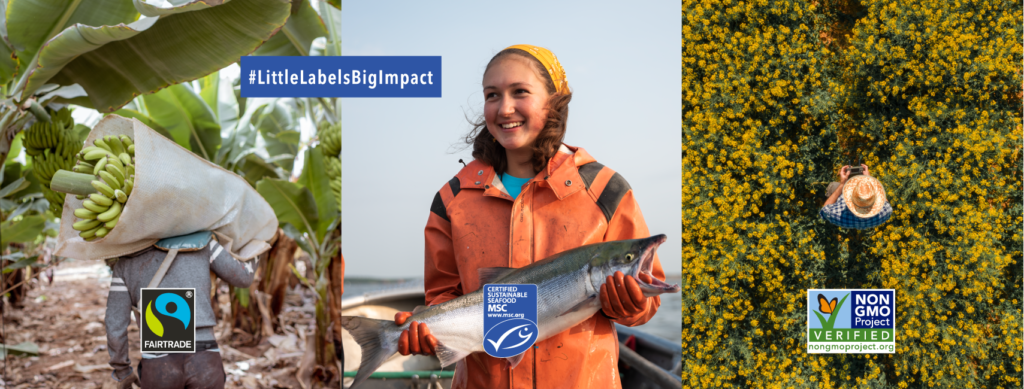Nestled in Napa, CA, the heart of the Curiel family beats with a passion for crafting authentic tortillas and tortilla chips. Founded in 1991, Morenita Foods embarked on a flavorful journey that has now touched the taste buds of many across California's Bay Area.
What started as a local restaurant venture quickly transformed as Morenita Foods’ chips won hearts with their unique crunch and distinctive flavors. Today, their products grace over 140 locations in Northern California, a testament to the love they've garnered over the years.
In November, Morenita Foods became a pioneer in the Non-GMO Project’s Equitable Transfer Program. Using the funds to facilitate Non-GMO Project verification, Morenita Foods’ Vice Jefe, Jerry Curiel, emphasized the importance of preserving ancestral heritage. "As a Mexican American, corn is not just a staple but is entrenched in our culture. It was vital for us to use only non-GMO ingredients," Jerry expressed.
He applauded Mexico's efforts in banning GMO corn, finding it a validation of their mission. Jerry acknowledged the time it takes to tackle the GMO issue but expressed hope for a brighter future, thanks to organizations like the Non-GMO Project.
Jerry shared a poignant cultural connection, comparing his parents' migration to the monarch butterfly's journey, symbolizing resilience and the pursuit of a brighter future.
Since achieving Non-GMO Project verification, Morenita Foods partnered with UNFI, a renowned wholesale distributor specializing in natural and organic products. This collaboration aims to bring Morenita Foods' unique chips to more households, aligning with its mission to provide healthier food options.
Morenita Foods’ tortilla chips are crafted in small batches and boast three distinct flavors: Original, Salt & Lime, and Chile Lime. From their original creation in 2002 to the zesty Salt & Lime flavor in 2011 and last year’s addition of Chile Lime, Morenita Foods continues to innovate and bring smiles one tortilla chip at a time.
Chilaquiles Recipe
Ingredients:
- 1 bag of Morenita Chips (Original Flavor)
- 7 clean and deveined Guajillo Chiles (Add four chilies if you like it very spicy. Use one or two for a milder flavor)
- 2 cups of water or chicken broth
- 3 fresh tomatillos (250 grams)
- A few sprigs of epazote
- 2 cloves of garlic
- A small pinch of cumin
- 1/4 teaspoon Mexican oregano
- Salt to taste
Instructions:
- Boil the guajillo chilies in two cups of water. Adjust the quantity based on your spice preference, using four chilies for extra heat or one to two for milder flavor.
- After two minutes, add the fresh tomatillos to the boiling water. Once the tomatillos change color, remove and set them aside.
- Once the guajillo chilies have cooled, strain them with chicken broth and set the mixture aside.
- Grind the tomatillos along with the spices (garlic, cumin, Mexican oregano) to create a flavorful base.
- In a little oil, fry four slices of onion. Remove the onion to perfume the oil, then sauté the tomatillos with the spices for about five minutes.
- Add the ground guajillo chilies to the mixture, followed by the epazote sprigs. Adjust the consistency by adding more chicken broth if necessary. Let it cook for an additional five minutes.
- Remove the epazote sprigs and season the sauce with salt to taste.
- Plate Morenita Chips and generously pour the sauce over them. Top with sliced onion and cheese.
- Enjoy your delicious homemade chilaquiles!
Explore Morenita Foods’ deliciously different tortilla chips online or locate them through the retail map on their website, www.morenitachips.com. Stay updated and inspired by following their Instagram and Facebook pages for more tantalizing recipes. Indulge in La Morenita's flavors and bring a piece of tradition to your table.
Guest writer: This piece was written for Morenita Foods by Jackie Roldan. Morenita Foods was a 2023 recipient of the Non-GMO Project's Equitable Transfer Program funding.
At Seattle Chocolate Company, we’re endlessly inspired to evolve, to be better to each other and the planet, and to leave the world brighter — and more delicious — than we found it.
Steered by owner and CEO Jean Thompson’s ethos of doing the right thing, Seattle Chocolate Company is a proudly woman-owned, carbon neutral and ethically sourced business that gives back 10% of our net profits to causes we’re passionate about.
First things first — the chocolate! We make delicious chocolate with the very best, ethically sourced ingredients, from puffed quinoa and toasted edamame to rainbow sprinkles and pop rocks.
As a manufacturer that makes and ships products around the U.S., we believe that it’s up to businesses like ours to model sustainable production, leading the charge in fighting climate change. In 2022, we took a hard look at our carbon footprint. We found it was bigger than we’d have liked. We took a two-pronged approach, both examining every process in our facility in order to reduce our carbon emissions as much as possible and purchasing carbon offsets.
We achieved carbon neutrality in late 2022.
To date, we’ve removed 3,000 tons of CO2 through our partner Nori, a local organization that focuses on regenerative agriculture. Regenerative agriculture enhances soil health, promotes biodiversity, fosters sustainable farming and sequesters CO2 from the atmosphere into the soil where it belongs. Our entire team has also become passionate about decreasing our waste and emissions at every turn, from composting everything possible to upcycling things like wooden pallets to switching to 100% renewable natural gas at our factory. Last year, we planted over 600 trees to celebrate things like employee birthdays, new hires and babies born.
Overall, as a company we do everything possible to ensure clean, healthy ingredients in each of our products — all of the fun stuff, none of the bad stuff. Knowing that something is non-GMO tells us that it is as whole and natural as possible. Non-GMO Project verification gives our retailers and consumers the assurance that what we say is what we do. So sit back and enjoy every bite!
LEARN MORE ABOUT OUR BRANDS: Seattle Chocolate | jcoco chocolate
Guest writer: This piece was contributed by Seattle Chocolate Company, a woman-owned, carbon-neutral company that believes chocolate can make the world a brighter place.
"In India, the flavors are bright, the world is colorful, and the Nimbu Pani is crisp and refreshing. I poured my Indian roots into this vibrant, bubbly take on the citrus sipper I grew up with. I hope you will join us on our exciting journey, too!"
Maxine Henderson, founder and CEO
Bollygood is celebrating our Non-GMO Project verification! We are delighted to partner with the Non-GMO Project to stand behind our good ingredients with transparency and accountability.
Bollygood makes better-for-you sparkling lemonade and limeade based on Nimbu Pani, a citrus drink enjoyed for centuries in India. With only 50 calories and 7g of added sugar, Bollygood empowers you to make better health choices for your family without sacrificing flavor.
Company founder Maxine Henderson was born in Canada to parents who immigrated from Kerala, India, in the 1960s. Growing up, she spent most summers in India surrounded by family, delicious food and great homemade drinks. As a child, Maxine particularly loved Nimbu Pani, eventually learning to make it for her family at home. After working as an electrical engineer, she pivoted towards entrepreneurship to create something close to her heart — a nostalgic, Nimbu Pani-inspired beverage without artificial ingredients. She started Bollygood, knowing she'd feel good about giving this beverage to her own kids.
"We are proud to be North America's first Indian-inspired lemonade and limeade," says Maxine. "Adding a sparkling twist to a classic recipe, Bollygood is a new and exciting way to experience this timeless drink."
Bollygood is thrilled to bring East Indian representation to the shelves!
Guest writer: This piece was contributed by Bollygood Sparkling Beverages. Bollygood's mission is to spread happiness and culture through our Indian-inspired beverages.
The food industry has seen some drastic changes since my wife and I opened Tiffin Asha in Portland, OR over 10 years ago. Changes that could force you to walk away from something you worked so hard to build. We held on somehow. I think sometimes it was stubbornness or maybe even a sadistic challenge. But all joking aside, I believe that there comes a point in your business where it morphs into identity, a part of your core or to put it more simply, you love it, therefore it becomes something almost impossible to completely walk away from.

We have seen this business through three incarnations, from food-cart-turned-restaurant to now a more sustainable pandemic-proof condiment line. One thing that has remained consistent throughout is we’ve never stopped cooking with heart. This is our style, always has been, always will be. It really goes without saying that caring about the quality and ingredients of what we put into our food is very important to both of us, so it was a natural decision for us to have our condiments Non-GMO Project Verified. We are so proud to be able to rock the Butterfly logo on our products, and we hope that our story can inspire micro businesses like ours to do the same.
My wife and I feel very passionately about the non-GMO movement. GMOs are carelessly put into our food supply, without considering sustainability and long term impacts on our planet and its people. The Non-GMO Project constantly works to educate people of this harm and illustrate that it doesn’t have to be this way. Maybe even some of these bigger food manufacturers can see that if smaller companies like us are finding a way, they should follow suit. At the very least we look at the Non-GMO Project’s logo as a way to make companies more transparent and accountable for the ingredients they choose to use.
We released our two condiments in October of last year and we are so excited to say both are Non-GMO Project Verified! Our South-Indian inspired Tomato Ginger Pickle and Green Tomato Pickle are part of a new generation of American condiments that folks can use to unlock new flavors with their everyday foods! Our Tomato Ginger Pickle has a delicious jammy texture with notes of citrus and maple. It first hits your mouth with a touch of sweetness and rounds out into a nice medium heat that slowly creeps in. Our two favorite go-tos with the Tomato Ginger Pickle are with any burger and grilled cheese. Our Green Tomato Pickle on the other hand is saucy, giving you more freedom to mix into other ingredients easily. Piquant, mustardy and spicy, this one is meant to wake your taste buds up! Our two favorite applications for the Green Tomato Pickle are dolloped onto any sausage and mixed into Mac and cheese. We like to tell folks that no recipe is required for these condiments! Isn’t that why you bought a jar of something delicious, so you wouldn’t have to cook?
Just in case, here are some pro-tips: pop the lid and dip, dollop, douse… repeat.
This guest post is written by Elizabeth Golay, Chef/Founder, Tiffin Asha
At I Eat My Greens, we celebrate the incredible power of vegetables for our well-being and the health of our planet.
Our mission is deeply aligned with the Non-GMO Project's work, and we are dedicated to offering you delicious, environmentally friendly, chef-crafted soups. Join us on a journey through sustainable agriculture, upcycling and soil health — and discover why we proudly carry the Butterfly.
A delicious blend of sustainability and flavor
I Eat My Greens soups are not only nourishing, they're made in alignment with our values. We carefully craft each recipe using responsibly sourced vegetables to minimize waste and nurture the soil. We prioritize Non-GMO Project Verified ingredients to meet the highest standard for GMO avoidance. Every spoonful of our soups represents our commitment to your well-being and the health of the environment.
Whether you choose our Broccoli & Sunflower Seeds Soup packed with seasonal vegetables or our vibrant Carrot-Sweet Potato & Turmeric Soup bursting with flavor, you can trust that you are making a delicious and Earth-friendly choice. Our soups are a testament to our passion for creating nourishing, delicious meals that make a positive impact on both your health and the planet.
Farming for the future
Agriculture is essential for nourishing our bodies, but it also has a significant impact on our planet. At I Eat My Greens, we collaborate with skilled farmers who steward the land they work on through diverse, environmentally-friendly practices. Farming for the future strikes a balance between planetary health, the well-being and profitability of farmers and preserving resources for future generations.
This delicate equilibrium is achieved through various practices, including integrated pest management for responsible pest control and crop rotations that enhance soil quality. We deeply understand the importance of each aspect and choose to partner with farmers who employ diverse ecological methods.
One vegetable at a time
Food waste is an urgent issue, with a staggering one billion tons of food ending up in landfills every year. I Eat My Greens proudly embraces upcycling, a transformative process that gives new life to vegetables that would otherwise go to waste. Instead of discarding produce due to cosmetic imperfections or appearance standards, we find ways to reuse them. It's important to recognize that the way food looks doesn't necessarily dictate its taste or quality. By rescuing these imperfect yet nutritious vegetables, we're sustainably feeding people and reducing waste.
Upcycling reduces greenhouse gas emissions, curbs deforestation and alleviates pressure on the environment. It also helps reshape our mindset and prevents the wasteful disposal of nutritious food. Our skilled chefs and food experts carefully assess the quality of these upcycled produce items to ensure they meet our high standards, resulting in delicious meals that contribute to a better food system.
It all starts with the soil
Soil health forms the foundation of agriculture. It is a complex ecosystem that supports the growth and sustenance of all living things. At I Eat My Greens, we have gained invaluable insights from our partnership with knowledgeable farmers committed to nurturing the soil.
In healthy soil, a thriving community of organisms provides the essential nutrients and minerals that plants need to flourish. Conversely, when soil is mistreated and loses its vitality, it becomes lifeless dirt, unsuitable for productive agriculture.
Without healthy soil, we cannot cultivate high-quality food. It is imperative to prioritize soil health.
That's why we partner with farmers who adopt soil-friendly practices, such as crop rotation, organic farming and regenerative agriculture. We collaborate with talented farmers who use a harmonious blend of traditional practices and innovation. By rejuvenating soil health, we're efficiently supporting diverse ecosystem services and nutrient-rich food.
The unsung heroes
Farmers are the unsung heroes of sustainable agriculture. At I Eat My Greens, we deeply value their contributions and recognize their role in maintaining natural habitats and ecosystem services. Moreover, we believe in giving back to these communities by making fresh produce available to workers in our plants and fields. We understand that supporting both the planet and the people cultivating our food is crucial.
A greener, nourishing futures starts with us
As conscious consumers, we have the power to shape the future of agriculture.
By supporting companies that are committed to responsible production, you can contribute to a healthier planet. When you choose I Eat My Greens, you are choosing products that promote sustainable agriculture and align with your values. Together, let's create a greener, more nourishing future for ourselves and future generations.
Your choices matter. Together, we can make a difference. Visit our website at ieatmygreens.com to learn more and join our mission.
This guest post is written by I Eat My Greens.
 Many people are concerned about how GMOs might impact them. The average consumer pays close attention and may choose products at the grocery store or garden center with a Butterfly label, indicating that the product is Non-GMO Project Verified.
Many people are concerned about how GMOs might impact them. The average consumer pays close attention and may choose products at the grocery store or garden center with a Butterfly label, indicating that the product is Non-GMO Project Verified.
However, with fast-moving technology and no shortage of opinions, even shoppers who try to avoid GMOs may be confused about them. We'll explain what makes a seed GMO and explore the difference between a GMO seed and a hybrid seed cultivar. Then we'll share the reasons you should choose non-GMO products and how this choice can benefit the earth on a mass scale.
What is a GMO?
GMO means "genetically modified organism." These are living organisms, including grains, vegetables and flowers, whose DNA is manipulated in a laboratory through genetic engineering. Many GMOs are engineered to create a tolerance to herbicides, while others can produce their own bioinsecticides. Some GMO developers even claim their products increase climate resilience.
GMOs are created through biotechnology, which involves modifying an organism's DNA using in vitro nucleic acid techniques or forcing the combination of unrelated organisms with newer methods. Biotechnology differs from traditional crossbreeding, which takes what already happens in nature and replicates it in a more controlled environment.
The origins of GMOs
In the 1990s, scientists used biotechnology to develop a type of corn that could produce its own insecticide by inserting a soil bacterium (Bacillus thuringiensis, or Bt) into the DNA of a corn plant. The crop became known as Bt corn. It was marketed and sold to corn farmers as a crop that could resist pests, and the use of GMOs in industrial agriculture began.
Throughout the 1990s, chemical companies produced a wave of crops through biotechnology – corn, cotton, soybeans, canola, tomatoes, summer squash and papaya. Many of these GMO crops are still available today and new GMO crops have been developed. In 2005, GMO alfalfa and sugar beets were made available; in 2017, GMO apples were introduced; and in 2020, the GMO pink pineapple first appeared for commercial sale.
Today, many commodity crops are genetically modified, primarily for herbicide tolerance or pest resistance. Some GMOs are marketed for improved resilience and higher yield, though these claims are contested. Herbicide-tolerant GMOs allow farmers to plant acres of GMO seeds and then use specific herbicides to kill off weeds without impacting their crops. Unfortunately, these herbicides can do a lot of damage to native species in the area.
What are hybrids?
A hybrid vegetable or flower comes from two parent plants of related species. Hybridization can occur in nature when two plants of related species cross-pollinate due to insects, animals or the wind. Alternatively, humans may choose two varieties for specific traits, such as appearance or disease resistance, and use paintbrushes or tweezers to transfer pollen physically, creating a hybrid. A fertilized flower produces seed that is a hybrid of the two parent cultivars. Growers choose seed from the offspring with the most desired traits and continue growing that hybrid plant. They continue to carefully select seed from the plants with the best traits over the next ten years or until they see consistency. Once an ideal hybrid is developed, the seeds of that cultivar are sold by various seed distributors. One example of traditional plant breeding is the 'Cherokee Carbon' Pole Tomato, created by crossing a 'Cherokee Purple' Tomato and a 'Carbon' Tomato.
Hybridization is how humans gradually developed an abundance of Brassica crops. Broccoli, cauliflower, kale, collards, cabbage, bok choy and kohlrabi are all Brassica oleracea plants. They are the same species, but careful cross-pollination and time have enabled humans to gradually transform these into the variations we now recognize as a multitude of vegetables. These changes took place over hundreds, perhaps thousands of years, resulting in the veggies available today.
Similarly, hybridization and careful cultivation by humans enabled us to take a wild grass known as teosinte and gradually train it to make larger and larger seed heads. Teosinte was developed over time and gradually transformed into the diversity of corn varieties we enjoy today.
How do GMOs differ from hybrid seeds?
The more similar two organisms are, the easier it is for scientists or skilled breeders to match their genetics and reproduce them through traditional cross-breeding techniques, resulting in a hybrid variety. In this case, people replicate what already happens in nature in a more controlled environment.
Developing GMOs requires the intervention of biotechnology, which allows scientists to overcome natural reproductive obstacles that prevent reproduction between different species. Via genetic manipulation in a laboratory, scientists can sidestep the slow, natural process of hybridization and can do things that hybridization would never be capable of.
Why choose non-GMO?
Herbicide tolerance has been built into over 80% of all GMOs grown worldwide, increasing the amount of toxic herbicides used to control unwanted vegetation. Increased herbicide use leads to a decline in native plants and has downstream effects on ecosystem biodiversity. Overusing toxic herbicides causes the emergence of pesticide and insecticide-resistant "superweeds" and "superbugs," and the only avenue for controlling these is even more toxic chemicals.
Non-GMO Project verification indicates a farm uses only practices and seeds that exclude GMO technology. These farms are part of the effort to reduce the toxic chemicals in industrial agriculture, reducing pollution and contamination of streams, major rivers and basins with poisonous waste. By shifting back to non-GMO and traditional farming or organic gardening techniques, we also restore rich soil, nourishing microorganisms and beneficial bacteria.
Buying from companies that sell Non-GMO Project Verified products supports farmers who preserve and protect the natural flora and microorganisms living in our soil. By choosing non-GMO products, you disrupt the support for industrial agriculture systems that are only focused on making money, regardless of their environmental impact.
The Non-GMO Project
The Non-GMO Project created a Butterfly label that symbolizes a commitment to transparency. This label appears on certified products that meet North America's most rigorous standard for GMO avoidance.
Botanical Interests supports the Non-GMO Project with every packet of seeds, promoting environmental sustainability and organic gardening while protecting native plants and pollinators.
Support the Non-GMO Project by growing your own food and flowers with Botanical Interests seeds, found at your local independent garden center or online.
This guest post is written by Botanical Interests.
If you were walking on a small farm managed by an Indigenous woman in the Amazon jungle, you might not realize it until she pointed out her crops to you. There are no rows, no chemicals, no straight lines of one type of plant stretching off into the distance. Among her food and medicinal crops, wild plants and animals are free to exist. Farming this way, in a truly traditional, regenerative, responsive cycle, creates a cascade of benefits for people, soil and the local ecosystem.
Sadly, the organic crops grown in these environments are often difficult to transport to market, and when they do get there, they have to compete with homogenized food from big, monocrop farms. For all of the ecological services the Indigenous farmer is doing for the forest and the world by working her land in a regenerative way, she is often barely able to support her family.

When Barnana began working with Indigenous women in the Amazon, it was initially simply to source the best quality plantains for organic plantain chips. Now, through direct relationships developed over time, Barnana collaborates with the farmers to guarantee them a dependable market, a predictable income and a brighter future. Drop-off sites stationed along the banks of the Amazon River mitigate transportation issues, local processing sites create jobs and a Barnana production facility in-country means the shortest possible distance from the Amazon forest – to a shelf at your local grocery store in the United States.
Waste Not, Snack a Lot
From being one of the first companies to take on upcycling to innovative recipes that further reduce waste, Barnana's adaptations along the supply chain have been a direct result of observation and response.
The impact of waste on farmer income and cost to the planet led to Barnana’s original Organic Banana Bites. Why waste bananas when you can sun-dry them and make perfect nutrient-dense, sweet and natural fruit snacks?
Alternatively, how can we support the farmers with the best plantains in the world when they are unable to access markets? The unique pressures on the people who live where Barnana’s crops are grown and processed into simple, sustainable snacks led to the creation of drop off sites and processing centers that are easily reachable — providing guaranteed prices, new jobs and predictable incomes.
The benefits of doing business in a responsive way, in a way that nurtures the Earth and its people, can be difficult to quantify. What we know is that through ongoing collaboration with small Indigenous farms in the Amazon, many tons of crops that would have been wasted have been rescued. Hundreds of farming families have been empowered and paid guaranteed prices. Farmers who have received support from Barnana in the organic certification process are now selling their crops for more than ever before and families and communities that were struggling on the margins are now securely operating in the mainstream economy.
The Future of Food
Barnana is not satisfied to tell its story as an unequivocal “win” for people and planet. In a long, hard, honest look at the variety of impacts even a small business has on its environment, the subject of organic waste needed to be addressed again. Plantain peels were seriously piling up at the factory. Recipe experiments led by the local team in Ecuador revealed that the plantain could be sliced whisper-thin with the peel ON and quickly fried in 100% organic coconut oil for a new, delicious, curiously dome-shaped chip. The extra benefit of a boost of fiber was just a plus along the way! And so the most recent and highly delicious Barnana product was born — Barnana Scoops.
The Barnana Scoops story is about the kind of innovation that's possible when you pay honest attention to what’s happening around you, listen respectfully to people closest to the land and pursue sustainable solutions to the world’s most pressing problems. Starting right where you are – and aiming for an always-improving future.
This guest post is written by Barnana.
A ship gone off-course
In a food system riddled with a lack of clarity, transparency and trust, we need all hands on deck to steer our ship in the right direction. When it comes to our grocery aisles and the food system in which we live and are nourished, there’s no lack of causes to champion. We need people fighting against over-harvesting of the ocean and the exploitation of global south food producers. We need people advocating for fair working conditions and just animal rearing practices. We want eyes on seed stewardship and ecosystem conservation.
Everyone plays a part
The best labels in our grocery store tackle unique problems in our food system. You’ll find Fairtrade addressing social and economic sustainability, advocating for fair labor practices, safe working conditions and adequate waste disposal. The Marine Stewardship Council (MSC) monitors science-based requirements for wild-caught fish, ensuring aquaculture products are traceable and sustainable. And, you’ll see the Non-GMO Project protecting the natural food supply, offering transparency and much-needed consumer education about the ingredients that go into our food.
Coalition-building
With a sea of labels tackling specific problems with our food industry, the take-home message is this: Each of us has a part to play, and each part is necessary. We need each other. Individual third-party certifications move our food system towards sustainability and accountability in our areas of focus. We can’t do this in a vacuum or in a one-stop-shop effort; we depend on our individual strengths to support, compliment and advance each other's work.
Fairtrade America's Kate Stritzinger beautifully describes our essential interconnection:
“Our broken food system cannot be fixed in a silo. The business of feeding people across the globe is inherently complex – bringing together humans across the planet as both creators and consumers, crossing countless sectors and industries, and affecting ecosystems everywhere in between. While we might all work on different parts of this interconnected web, we believe deep collaboration with partners like the Non-GMO Project and Marine Stewardship Council are crucial in our collective efforts to create long-lasting, sustainable change.”
Loose labeling laws and justifiable skepticism
However, there is justifiable skepticism about marketing claims in the grocery aisles. Brands can promote themselves with all manner of self-made claims. All natural! Sustainable! Climate-smart! Food-labeling laws in the United States allow for a hefty serving of bravado and marketing double-talk, making it hard to know what to trust and what to disregard.
Third-party certification on the scene
Third-party certifications are essential for backing up product claims. Third-party labels hold brands to an objective standard which products must meet. These organizations provide tangible benefits to people and the planet through their programs and services. When you purchase a product with the Marine Stewardship Council's blue fish, the Non-GMO Project's orange Butterfly seal, or the Fairtrade mark, your choice supports the continued work and impact of an organization you care about. That's why it's critical to ensure that consumers know the difference between fact and fiction, accredited label or self-made claim.
Partnership in action: "Little Labels, Big Impact"
Every year, the Non-GMO Project partners with other organizations to educate the public about the third-party certifications behind our labels. We call this campaign Little Labels, Big Impact. The Non-GMO Project team is honored to work with such visionaries to rebuild a food system we can believe in.
“Working together with the Non-GMO Project and Fairtrade America has been so valuable to educate Americans about the rigor behind food certification labels, and the impact of third-party certification on the environment and workers. Together our “Little Labels, Big Impact” campaign is empowering shoppers to buy products that align with their values, which is increasingly important in this day and age where people are concerned about where their food comes from and how it was harvested.” – Jackie Marks, senior public relations manager at the Marine Stewardship Council
Keep an eye out in your favorite local grocery store to learn more about this partnership!
 By Madi Burke, guest writer. As a writer, explorer, and incessantly curious person, Madi Burke has always felt passionate about the natural world, our lived environments, and how to create more equitable systems that bring people closer to the nourishment and quality of life that comes with an integrated relationship to the earth. After receiving her undergraduate degree in sociology and speech communications, Madi went on to lead cycling trips in national parks, support nonprofit development, and now gets to help organizations tell their story as a freelance writer and brand manager.
By Madi Burke, guest writer. As a writer, explorer, and incessantly curious person, Madi Burke has always felt passionate about the natural world, our lived environments, and how to create more equitable systems that bring people closer to the nourishment and quality of life that comes with an integrated relationship to the earth. After receiving her undergraduate degree in sociology and speech communications, Madi went on to lead cycling trips in national parks, support nonprofit development, and now gets to help organizations tell their story as a freelance writer and brand manager.
As a consumer, you deserve transparency in whatever you put in your body.
Miracle Noodle believes wholeheartedly in the importance of knowing exactly what you're putting into your body, so we've partnered with the Non-GMO Project to ensure you have complete confidence in what you're eating. Non-GMO Project Verified Miracle Noodle uses only natural ingredients that are free of gluten and soy. Our products are for anyone looking for simple and better alternatives to traditional noodles and rice.
Miracle Noodle caters to your health, fulfillment and happiness. Take that bite guilt-free!
Spicy Miracle Ramen with Seared Kielbasa and Jammy Eggs
Every meal needs a little kick, and Spicy Miracle Ramen just might be your new favorite. Try this fun recipe with your family and friends!

Ingredients:
1 pack of Miracle Noodle Angel Hair
Half a small onion, diced
Sesame oil
Avocado oil
2 green onions, diced
2 tsp of garlic, minced
2 tsp of ginger, minced
2-3 tsp of Flavor God Everything Spicy Seasoning
1/4 cup Rao's Homemade Marinara Sauce
1 tbsp of coconut aminos
2 dried chiles, chopped
2-3 cups of chicken bone broth
Lime juice
Jalapeños, sliced
Kielbasa, seared and sliced
Lime wedge
1 soft boiled egg
Directions:
- Prepare Miracle Noodles according to package directions. Set aside.
- Sauté half a small onion diced in a little sesame oil and avocado oil. Add green onions with the dark green parts set aside.
- Once the onions are soft, add minced garlic and ginger. Add a few teaspoons of Flavor God Everything Spicy Seasoning.
- Sauté for a minute, then add Rao's Homemade Marinara Sauce. Mix that in, then let it heat through.
- Put the sauce with onions, garlic and ginger in a blender till smooth.
- Return blended sauce to the pot and add coconut aminos. Add a few chopped red dried chiles to give extra spice, then add 2-3 cups of chicken bone broth.
- Bring to a boil and add Miracle Noodle Angel Hair. Let simmer for 10 minutes.
- Squeeze some lime juice over the top and pour into two bowls.
- In a pan, sear kielbasa is a bit of sesame oil.
- Top with sliced jalapeño, kielbasa, lime wedge, green onions and a soft boiled egg.
Optional: Try the Dash rapid egg cooker for an easy soft boiled egg.
*Photo courtesy of the author
Guest writer: This recipe was provided by guest contributor Heather Cox.

